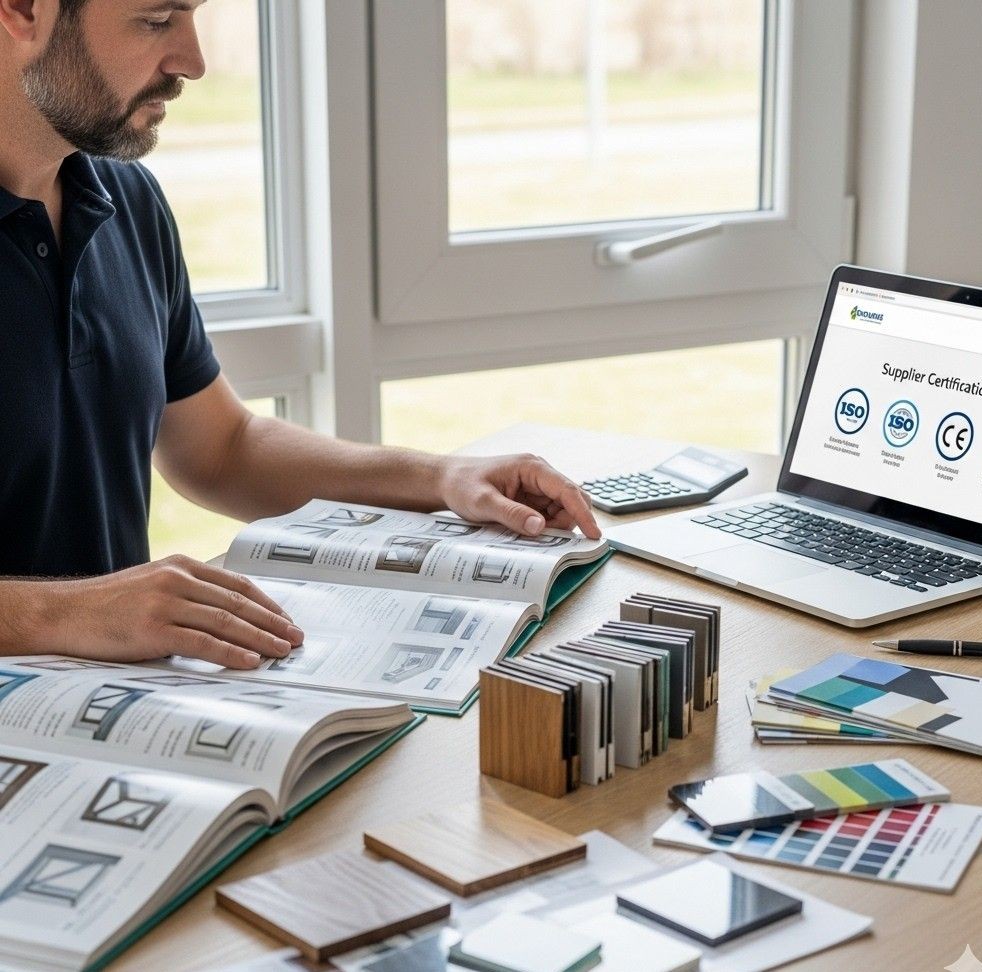Key Takeaways:
- uPVC crank-out windows offer excellent energy efficiency, durability, and design flexibility for residential and commercial projects in 2025.
- Core attributes include multiple sizes, wide finishes, double or triple glazing, strong insulation, and long warranties.
- Compared to aluminum, wood, and sliding windows, uPVC provides superior insulation, durability, and low maintenance with broad customization.
- Bulk procurement requires attention to supplier certifications, lead times, minimum order quantities, and after-sales support.
In 2025, uPVC crank-out windows are defining modern construction. Their balance of energy efficiency, durability, and design versatility makes them a first choice for both residential and commercial projects.
With diverse suppliers, evolving glass technologies, and broad customization options, the buying process demands a clear strategy. This guide breaks down the technical essentials, performance factors, and procurement insights every builder, architect, and developer needs to know.
What Are uPVC Crank-Out Windows?
These casement-style windows are hinged on the side and open outward using a crank handle. They are designed to maximize ventilation, provide unobstructed views, and create a secure seal.
Core Attributes:
- Available in multiple sizes and styles
- Wide color and finish options
- Single, double, or triple glazing
- Energy performance ratings
- Durable hardware and long warranties
Features & Benefits
Comparison: uPVC vs. Other Window Materials
| Feature | uPVC Crank-Out Windows | Aluminum windows | Wood Windows | Sliding windows |
| Thermal Insulation | Excellent | Moderate | Good | Lower |
| Durability | High (no corrosion) | High but conducts heat | Vulnerable to rot/pests | Moderate |
| Maintenance | Low (easy cleaning) | Low | High (requires painting) | Low |
| Noise Reduction | Strong with glazing | Moderate | Strong | Weaker seal |
| Design Flexibility | Wide customization | Sleek, modern | Classic | Limited |
Key Performance Factors
- Durability – Resistant to cracking, fading, and corrosion
- Weather Resistance – Tight seals against wind and rain
- Noise Control – Effective multi-glazing options
- Low Maintenance – No painting, simple cleaning
- Long Lifespan – Often exceeding 20 years
Technical Aspects
Frame Material Science
uPVC (unplasticized polyvinyl chloride) is rigid, recyclable, and engineered for insulation. Its cellular structure prevents heat transfer, making it sustainable and energy-conscious.
Energy Efficiency Certifications
Buyers should verify compliance with:
- Energy Star (North America)
- ISO and CE certifications (international standards)
- Low U-value ratings for thermal performance
Glass & Glazing Options
- Double and triple glazing for energy efficiency
- Laminated glass for enhanced safety
- Low-E coatings for solar heat reduction
Buying Considerations

At-a-Glance Comparison
|
Consideration |
Why It Matters |
Buyer Impact |
| Price | Dependent on glazing, size, hardware | Budget alignment |
| Bulk Discounts | Offered for wholesalers and developers | Cost efficiency |
| Supplier Reputation | Certifications, consistency, references | Reduced project risk |
| After-Sales Support | Warranty, installation guides | Lower lifetime costs |
| Lead Time | Varies by customization and logistics | Project scheduling |
When selecting suppliers, prioritize proven certifications and reliable logistics. Some global manufacturers, including Oridow, offer both uPVC and aluminum windows with flexible options for residential and commercial builds.
Customization & Ordering
Buyers can tailor specifications to match project demands. Typical options include:
- Sizes & Configurations – Single, double, or multi-panel systems
- Colors & Finishes – From neutrals to wood-grain laminates
- Hardware – Stainless steel hinges, secure handles, insect screens
- Glazing Choices – Energy-saving, acoustic, or security-focused
Manufacturers such as Oridow provide full flexibility, ensuring crank-out units integrate seamlessly with other systems like sliding windows.
Purchase Path & Transactional Guide
Steps to Choosing the Right Window
- Define project type and climate requirements.
- Set a budget with ROI in mind.
- Select glazing, finishes, and hardware.
- Verify supplier certifications and lead times.
Bulk Procurement Essentials
- Minimum Order Quantity (MOQ): Based on supplier terms
- Lead Time: Affected by order scale and customization
- After-Sales Support: Ensure warranty coverage and installation guidance
For further insights, see the top reasons uPVC crank-out windows are favored in 2025 projects.
Final Thoughts
uPVC crank-out windows remain one of the most reliable fenestration choices in 2025. Their energy performance, low maintenance, and customizable designs make them well-suited for both residential and commercial applications.
By focusing on certifications, supplier reputation, and technical specifications, buyers can secure durable, compliant, and cost-effective solutions that deliver value over decades.
Frequently Asked Questions (FAQs)
What are uPVC crank-out windows?
They are side-hinged casement windows made from unplasticized PVC that open outward with a crank handle, offering energy efficiency and strong ventilation.
How do they compare with other windows?
- uPVC vs. Aluminum: Better insulation
- uPVC vs. Wood: Lower maintenance
- uPVC vs. Sliding: Tighter seal and improved efficiency
Are uPVC crank-out windows energy-efficient?
Yes. With Low-E coatings, double or triple glazing, and proper seals, they achieve strong energy ratings under standards like ISO and Energy Star.
How long do they last?
Typically more than 20 years, depending on climate and upkeep. Their resistance to corrosion and weathering ensures long service life.
What customization options exist?
- Sizes and multi-panel layouts
- Wide range of colors and finishes
- Hardware including handles and screens
- Glass choices such as laminated or acoustic glazing
What matters most before bulk ordering?
- Minimum order requirements
- Delivery timelines
- Verified certifications
- Reliable after-sales support





